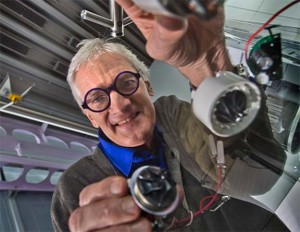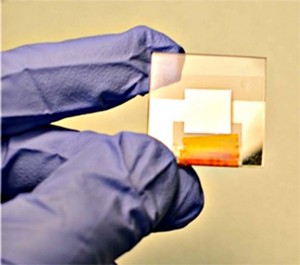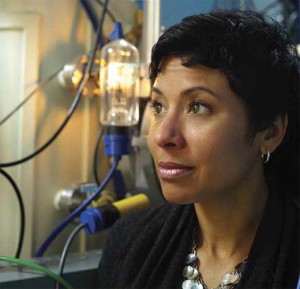Best known for its costly but powerful vacuum cleaners, British appliance manufacturer Dyson Ltd. has snapped up a promising Michigan-based battery start-up pioneering a new form of lithium-ion technology it claims can deliver twice the power of current battery chemistry.
A spin-off of the University of Michigan, Ann Arbor-based Sakti3 has been developing so-called solid-state lithium-ion technology, proponents believe could improve reliability and, if used in an automobile, greatly increase vehicle range and performance.
Dyson not only plans to use Sakti3 technology in its conventional product lines, such as cordless vacuums, but could find new business opportunities, the company founder, James Dyson said. And with the British firm now planning to spend as much as $1 billion to set up a battery plant using Sakti3 chemistry, that is fueling speculation Dyson might offer the technology to the electric vehicle market.
“We are keeping a very open mind,” founder and chief engineer James Dyson told USA Today when asked about the battery plant. So far, his firm has not decided where that factory would be built. But Dyson could position itself as a direct competitor to Tesla Motors which is getting ready to launch production at its own “Gigafactory” battery plant in Reno, Nevada.
The Tesla operation is expected to supply batteries not only for vehicles like the Model S and news Model X, but also for Tesla’s new home and office battery backup systems. Once fully operational, the Gigafactory was expected to become the world’s largest lithium-ion plant.
(Who’s greenest? Five Green Car of the Year finalists named. Click Here to make your pick.)
Unlike the LIon technology used by Tesla and other battery manufacturers such as Japan’s Panasonic and Korea’s LG Chem, Sakti3 has been working on a form of the chemistry that uses no liquid components. Referred to as a solid-state battery, many experts believe it could be the next big step that the auto industry, in particular, has been looking for.
Among other things, solid-state batteries generate less heat and are thus less likely to overheat than “wet” lithium batteries. Sakti3 claims they can be recharged in a fraction of the time needed for conventional lithium-ion batteries, as well. They are expected to last longer and, by some estimates, should have twice the energy density of the batteries now in use in vehicles like the Tesla Model S and Chevrolet Volt.
(Click Here for a review of the 2016 Chevrolet Volt.)
That would make it easier to deliver the range motorists have been demanding while significantly reducing the size of the battery pack. But such a battery breakthrough would also have huge potential for consumer goods, from cellphones to portable vacuums, which need to be charged frequently.
Because solid-state technology is still in development, however, it is too early to get a clear sense of pricing. On the positive side, conventional lithium-ion batteries are expected to drop to around $200 a kilowatt-hour by decade’s end, down from as much as $1,000 per kWh in 2010.
Interest in solid-state batteries has been intense in recent years as demand for clean energy has accelerated. Sakti3 CEO Ann Marie Sastry met with President Obama – himself a proponent of battery-car technology – earlier this year.
Named one of the “50 Smartest Companies” in the MIT Technology Review this year, Sakti3 has drawn the interest of a number of major players, including Dyson – which previously invested $15 million – as well as General Motors. GM pumped in $4.2 million through its then-new venture capital fund in 2010.
At that time, Jon Lauckner, the president of GM Ventures LLC, declared that, “Our investment in Sakti3 gives us access to an innovative battery technology that has the potential to be a mainstream solution for electrically-driven cars and trucks of the future.”
Whether GM is now cashing out and ending its relationship with Sakti3 is uncertain. The maker has a well-established relationship with LG Chem which produces batteries at a plant near Grand Rapids, Michigan for the Chevrolet Volt plug-in. The Korean firm also will help power the new Chevrolet Bolt, a 200-mile pure battery-electric vehicle GM plans to launch next year.
GM has not yet responded to questions about possible future ties to Sakti3.
(For more on the all-new 2016 Toyota Prius hybrid, Click Here.)



